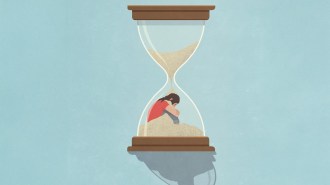People see own good but gossip about others’ misdeeds
Cellphone surveys probe gap between personal virtue and negative chatter

YOUR BAD Cellphone surveys suggest people focus on their own good behavior but gossip mainly about others’ transgressions, such as stealing someone else’s property.
AmmentorpDK/iStockphoto







